Over the past three years, it has become increasingly apparent that many physicians are in the back pockets of Big Pharma. Thanks to Open Payments, we have the data to prove this.
As background, Open Payments is a United States government program under the auspices of the Department of Health and Human Services. Open Payments is:
"...a national disclosure program that promotes a more transparent and accountable health care system. Open payments houses a publicly accessible database of payments that reporting entities, including drug and medical device companies, make to covered recipients like physicians."
Data for all of program year 2021 (January 1, 2021 to December 31, 2021) was just released in January 2023.
Here's how the Open Payments system works:
Here's a video with additional background information on the program:
Payments are reported across three major reporting categories:
1.) General Payments: Payments or other transfers of value made that are not in connection with a research agreement or research protocol.
2.) Research Payments: Payments or other transfers of value made in connection with a formal research agreement or research protocol.
3.) Physician Ownership Information: Information about the ownership or investment interests that physicians or their immediate family members have in the reporting entities.
Let's look at what Open Payments found for the 2021 program year. Here is a graphic summarizing the findings for 2021:
Here is a breakdown of physician payments by state:
Big Pharma paid a total of $2.032 billion in 7,844,949 payments to physicians with the national mean payment being $3,823.36 and the national median being $142.93. Here is a table showing the top ten states in order of total payments:
Here is a table showing the top ten states in order of mean payment amount:
For the purposes of this posting, we will focus on two companies; Pfizer and Moderna. We will only look at one of Pfizer's subsidiaries; Pfizer Inc. out of New York, since it is responsible for the vast majority of payments:
1.) Pfizer:
In case you were curious, here is some background information on Peter Tontonoz who happened to be the largest single recipient of Pfizer's largesse:
2.) Moderna:
To put payments to physicians into context, let's quote from a paper by Dr. Misop Han entitled "Trends in Industry Payments to Physicians in the First 6 Years After Graduate Medical Training":
"Financial incentives and conflicts of interest have been considered important elements that may influence physician decision-making and may contribute to an increase in health care costs. Although physicians and researchers collaborate with the pharmaceutical and medical device industry to develop products to benefit patients, increasing concerns have been raised that these relationships may affect the cost of drugs and medical devices, the quality of patient care, the integrity of scientific investigations, medical education, and clinical practice recommendations. Substantial efforts have been made to identify, limit, and manage potential conflicts of interest in financial relationships between physicians and industry to protect the integrity of professional judgment and to preserve public trust."
Not surprisingly, since the pandemic began, medical doctors have seen their ethical ratings drop as shown on this graphic by Gallup:
In 2020, 77 percent of respondents rated physicians as high or very high compared to 62 percent in 2022, a very significant decrease.
Given the fact that many physicians proved themselves to be less than reliable and unbiased sources of information, particularly with regard to the COVID-19 vaccines, during the pandemic and the fact that Big Pharma spends billions of dollars a year to court medical doctors, it's no wonder that the public is becoming skeptical about the profession.
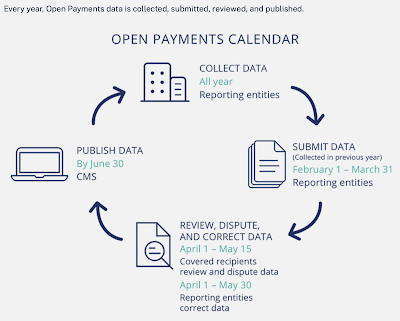
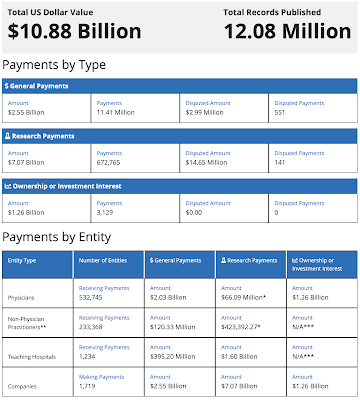
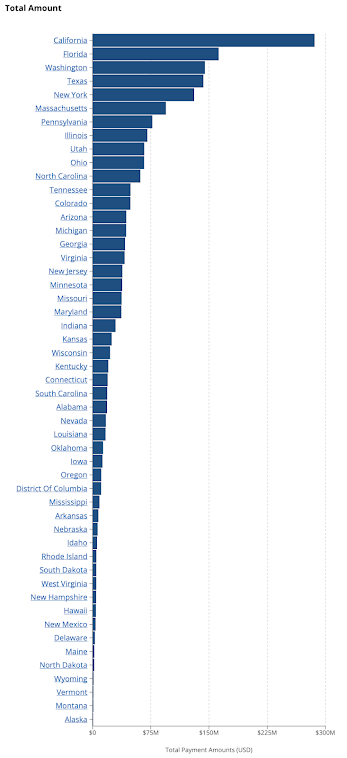
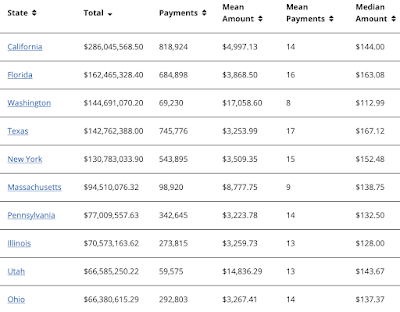


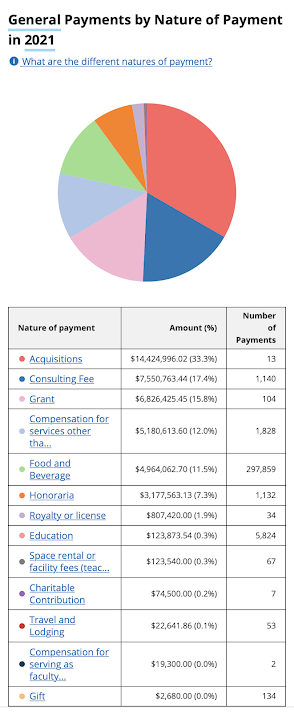












No comments:
Post a Comment